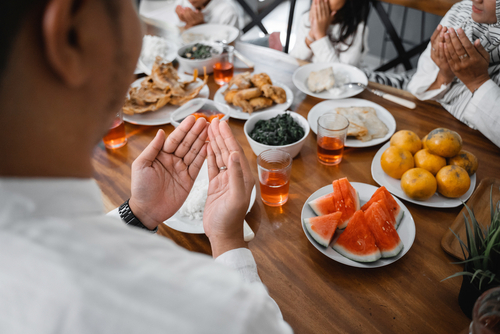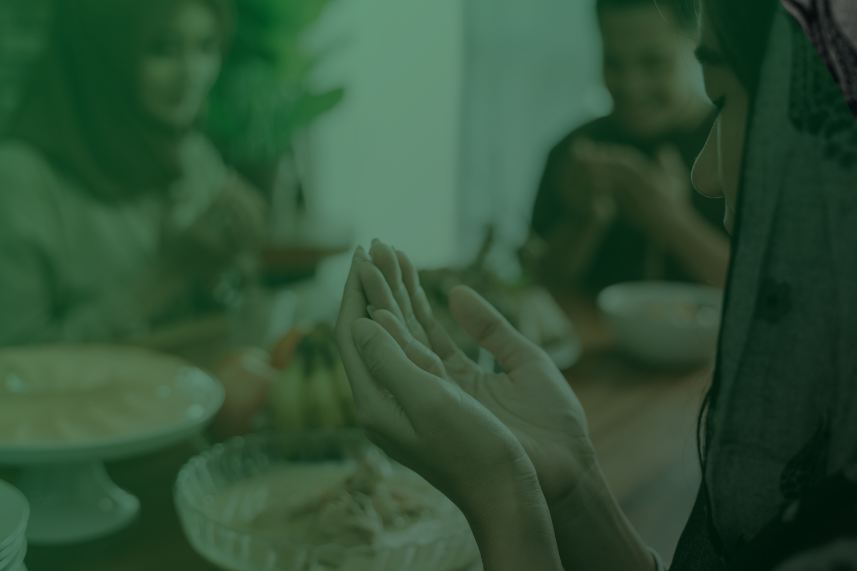Ramadan is a glorious month, the month that Muslims around the world have been waiting for. The reason is, in this month all the rewards of good deeds will be multiplied by Allah SWT. In addition, there are also special practices that can only be performed during the month of Ramadan, such as the sunnah tarawih prayers, zakat fitrah, and so on. But what about the Prophet, what are the practices that the Prophet Muhammad did in the month of Ramadan?
Practices of the Prophet Muhammad in the Month of Ramadan
One of the habits of the Prophet Muhammad before the month of Ramadan was that he would only start his fast if he had seen the new moon or had received news from someone he trusted about the sighting of the new moon. So when the holy month has arrived, what are the Prophet Muhammad’s practices during Ramadan?
Sahur at the End of Time, Hastening to Break the Fast
The Messenger of Allah advised his people to end the meal, close to the time of Fajr and hasten to break the fast or break the fast immediately when the time comes. This suggestion is contained in several hadiths, one of which is a hadith narrated by Ahmad: “My people are in goodness as long as they hasten to break their fast and end their meal.”
Another hadith which states that the Prophet Muhammad always hastened to break his fast is the hadith of Aisha RA.
“Aisyah radhiyallahu’ anhu asked: “Who hastened to break the fast and hastened the prayer?” We replied: “Abdullah bin Mas’ud.” He said: “That is what the Messenger of Allah did.” (Muslim HR)
Also Read: Sederet Hikmah Puasa Ramadan: Derajat Terangkat, Kemudaratan Teredam

Meanwhile, the purpose of ending the meal, according to Abu Bakr Al-Kalabadzi, is to eat the meal in the last third of the night.
“The Prophet Saw was once asked, ‘What night is the most heard (prayer)?’, ‘The last third of the night,’ said the Prophet SAW. In another hadith, the Prophet SAW said, ‘Enduring the meal is part of fitrah. Because at that time prayer, forgiveness, and wishes were granted by Allah SWT.” (Book of Bahrul Fawaid)
Don’t Miss Sahur
Apart from advocating ending the meal, Rasulullah SAW also advised his people to attend the meal. Why is that? Because the Apostle said, in the meal there is a blessing and Allah and His angels bless those who do not leave their meal, as the following hadith says:
“Eat your sahur because in eating sahur there is a blessing.” (Narrated by Bukhari Muslim)
“Eating sahur is a meal full of blessings. Don’t leave it even with a sip of water because Allah and His angels pray for those who eat sahur.” (Narrated by Ahmad)
Also Read: Ramadan Menghitung Hari, Persiapkan 4 Hal Ini Sebelum Puasa

In addition to the two virtues above, sahur is an important activity in Ramadan fasting. This is because sahur is the difference between fasting practised by Muslims and fasting carried out by members of other religions.
“From Amru bin al-‘Ash, the Messenger of Allah said, “The difference between our fasting and the fasting of the people of the book is eating sahur.” (Muslim HR)
Little Sleep, Much Istighfar
During the month of Ramadan, Rasulullah SAW reduced his sleeping time at night and increased his worship, including asking Allah for forgiveness or making istighfar. This is mentioned in the Al-Quran verses Az-Zariyat 17 and 18.
“They (the righteous) sleep very little at night; and at the end of the night they ask forgiveness (of Allah).” (QS Az-Zariyat: 17-18)
Keep the mouth
In addition to concrete worship, the Prophet Muhammad also performed invisible practices, namely guarding his tongue so as not to utter inappropriate words. But basically, Rasulullah SAW is a noble creature, so whatever is done and comes out of his mouth, everything is good. This, of course, needs to be emulated by Muslims, one way to practice this is by fasting.
Also Read: Hidup Sehat dengan Jalankan 5 Amalan Sunnah Rasulullah SAW
“From Abu Hurairah radhiyallahu’ anhu he said, Rasulullah SAW said:” Allah SWT says (Hadith Qudsi): Every deed of Adam’s children and grandchildren is for him, except fasting, it is for Me, and I will repay it. Fasting is a shield (fortress). When you fast, don’t say dirty words and make loud noises (yelling). If someone invites you to fight or argue, then say: I am fasting.” (Narrated by Bukhari 1904)
Try not to break the fast even though you are traveling
The sunnah practice of Rasulullah SAW in the next month of Ramadan is trying to complete fasting even though he is on a long journey. This is stated in the hadith narrated by Bukhari number 1943 which reads:
“From Aisyah radhiyallahu’ anhu, Hamza bin Amru al-Aslami asked the Prophet Muhammad: “Should I fast while traveling?” Hamzah is a person who likes fasting. The Prophet SAW replied: “If you want, please fast, if you want, please don’t fast.”
Multiply Alms
Outside the Month of Ramadan, alms is one of the recommended practices, because alms cleanses our wealth and softens the heart. However, in the month of Ramadan, the practice of charity becomes even more special, because it will be multiplied. Like the Messenger of Allah who never misses alms in the month of Ramadan, as the following hadith says:
“Yazid said: “Abu al-Khair, never a day goes by without him giving alms, even if it’s just a piece of cake or an onion and the like.” (Reported by Ahmad)
Multiplying Prayer
Multiplying prayers in Ramadan is one of the recommended practices because the prayers of people who fast will not be heard and granted by Allah Swt.
“Three prayers that will not be rejected, namely the prayer of the parents, the prayer of the fasting man, and the prayer of the traveller.” (HR Baihaqi)
Iftar with Dates
The Messenger of Allah Saw always broke with dates if he had them. Dates were chosen because in the time and place where the Prophet Saw lived, dates were very abundant.
“From Anas bin Malik radhiyallahu’ anhu, he said: “The Messenger of Allah Saw used to break the fast with rutab (young/wet dates) before the Magrib prayers. If there is no rutab then he breaks with tamar (dried dates). If he doesn’t have one then he breaks his fast by drinking a few sips of water.”
Giving Iftar Meals to People Who Fast
Rasulullah Saw often gives iftar meals for those who fast in Ramadan. This practice can reward a person, just like a person who fasts.
“From Zaid ibn Khalid al-Juhani he said, The Messenger of Allah Saw said: “Whoever opens (gives the opening of) the one who fasts, then he will get the reward of his fast without reducing the reward of that person in the slightest.” (HR Tirimidzi 807)



